 Eagle Feathers #103 – Harmony Hills
Eagle Feathers #103 – Harmony Hills
By Bob (Monty) Doherty
Somerville has often been referred to as the “City of Seven Hills.” A more accurate description would be the city of fourteen elevations with twenty-eight different names. Through its history, the hills have echoed the sound of music, originally from the Pawtucket Indians who pre-dated the Europeans.
From as early as 1628, two years before Boston was established, English people sang the scriptures in what is now Somerville. When the governor of Massachusetts Bay, John Winthrop, and the Puritans came here to Ten Hills, they outlawed singing, except when caroling their prayers and psalms. They banned what they deemed ungodly chants and songs that they thought corrupted youth.
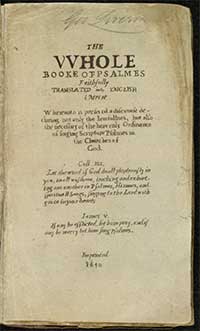
The printing of the first full-length book in America was the 1640 Bay Book of Psalms. One of the eleven surviving copies sold at auction in 2013 for $14,165,000, making it the highest priced book in the world. It is said that the Puritans sang to the quiet sound of violins, lutes, and flutes. As time progressed, restrictions on music lessened. When sailors, crews, and voyagers arrived here, they introduced colonial ballads and songs that were performed on fiddles, bagpipes and other wind instruments.
Somerville’s hills have been witness to an abundance of music for 388 years. Many of the city’s old turreted houses were designed with music in mind. These turrets were piano nooks.
Through time, up to and including today, Somerville’s hills have witnessed a colorful, musical tapestry. Here are several examples:
- Patriotic singer, Kate Smith, sold over $600 million worth of war bonds, more than any one else. Her theme song was God Bless America. Her debut was at the Somerville Theatre.
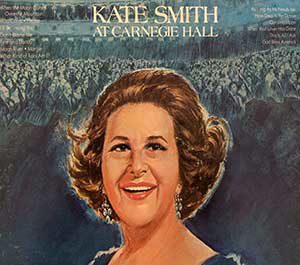
- Symphony Park is the city’s newest, and it honors the musical Hadley family. One of its members, Henry Hadley, led the Seattle, San Francisco, and New York symphonies. He also established the Tanglewood Musical Festival in the Berkshires.
- Sam Walter Foss, Somerville’s most famous poet and librarian, wrote the poems Songs of War and Peace, The Song of the Library Staff, and his most notable, The House by the Side of the Road, which was put to song.
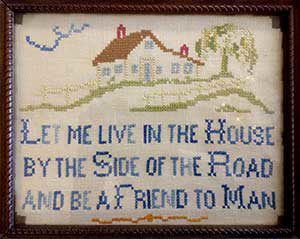
- Somerville resident and famous entertainer, Arthur Godfrey, made the ukulele popular from coast to coast.
- Spring Hill’s accordion-playing Anthony “Tony” Lavelli played basketball for the Boston Celtics, the New York Knicks and the Harlem Globe Trotters, but his real passion was studying music at Julliard.
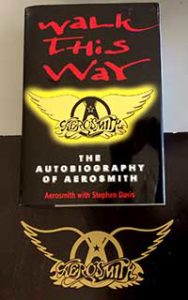
- Members of the rock group Aerosmith sometimes practiced at Spring Hill and Cobble Hill.
- Mary Tyler, who was the object of the song Mary Had A Little Lamb lived most of her life on Spring Hill.
- Winter Hill’s Bobby “Boris” Pickett and his band, The Crypt Kickers, became a “graveyard smash.”
- Harry Ellis Dickson, father-in-law of Governor Michael Dukakis, rose from Somerville High School’s orchestra to be the Associate Conductor of the Boston Pops Orchestra. The Center of Fine Arts and Humanities room at the Winter Hill Community School was dedicated to him.
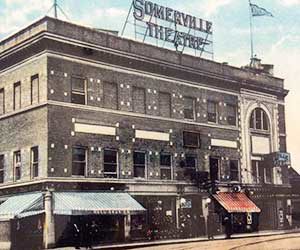
- Overshadowing Seven Hills Park, the heart of Somerville’s popular music has been its theatre in Davis Square. Its celebrities include Bruce Springsteen, U2, Tracy Chapman, Joan Baez, Norah Jones, Arlo Guthrie and many others.
To quote Julie Andrews: “The hills are alive with the sound of music!”
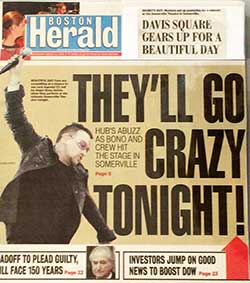
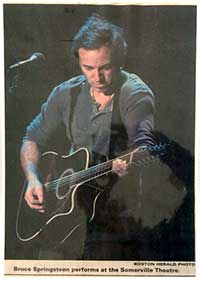















so much great music has been played in this city — its amazing. too bad we lost johnnys but I know the tradition will carry on